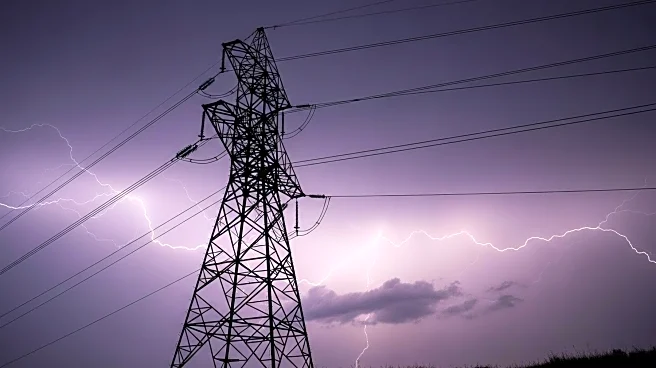What is the story about?
What's Happening?
A significant power outage in April affected large parts of Spain and Portugal, causing widespread disruption. The incident, described as the most severe in Europe in the last 20 years, was caused by a series of 'cascading overvoltages'. These overvoltages occur when there is an increase in electrical supply voltage above the norm, potentially due to surges in networks or insufficient protective equipment. The blackout led to a halt in transport links, internet, and telephone connections, and emergency workers were called to free people trapped in elevators. The report by Entso-e, the association of electricity grid operators, highlighted the failure of automatic defense plans to prevent the shutdown of the power system.
Why It's Important?
The blackout underscores vulnerabilities in the power infrastructure of Spain and Portugal, raising concerns about the preparedness of these systems to handle unexpected surges. The incident has prompted investigations by the Spanish government and power companies, with findings suggesting both national grid providers and private electricity companies share responsibility. The disruption affected daily life significantly, highlighting the need for improved emergency response and infrastructure resilience. The event serves as a wake-up call for other European countries to assess and strengthen their power systems to prevent similar occurrences.
What's Next?
Further investigations are underway to determine the root causes of the overvoltage and to develop strategies to prevent future incidents. A final report is expected in the first quarter of next year, which will provide more detailed insights into the failures and recommend measures to enhance system reliability. Stakeholders, including government agencies and power companies, are likely to face increased scrutiny and pressure to implement reforms to ensure the stability and security of the power grid.

















